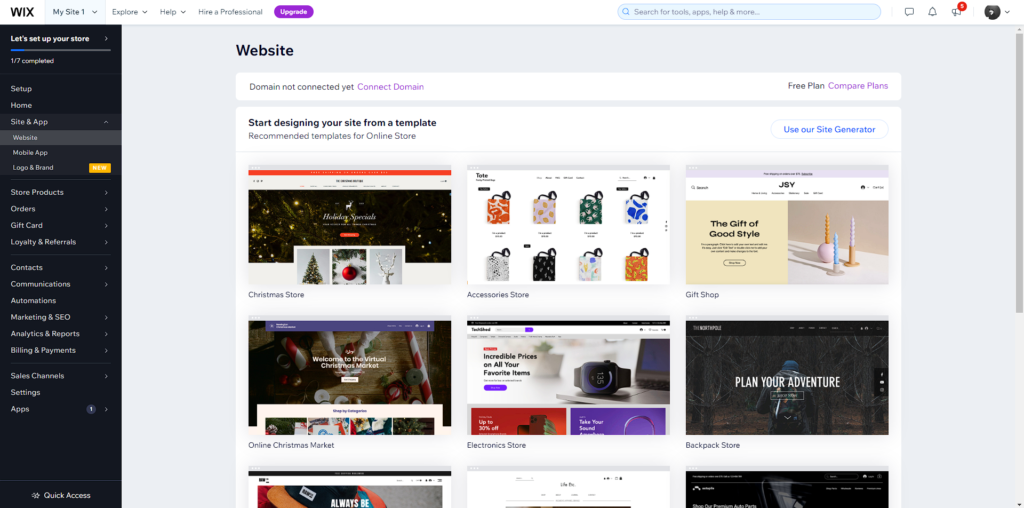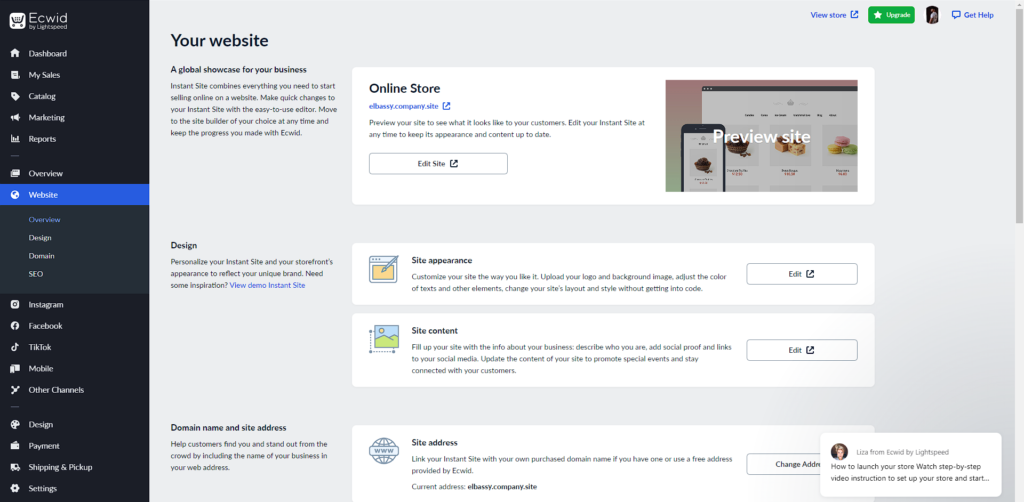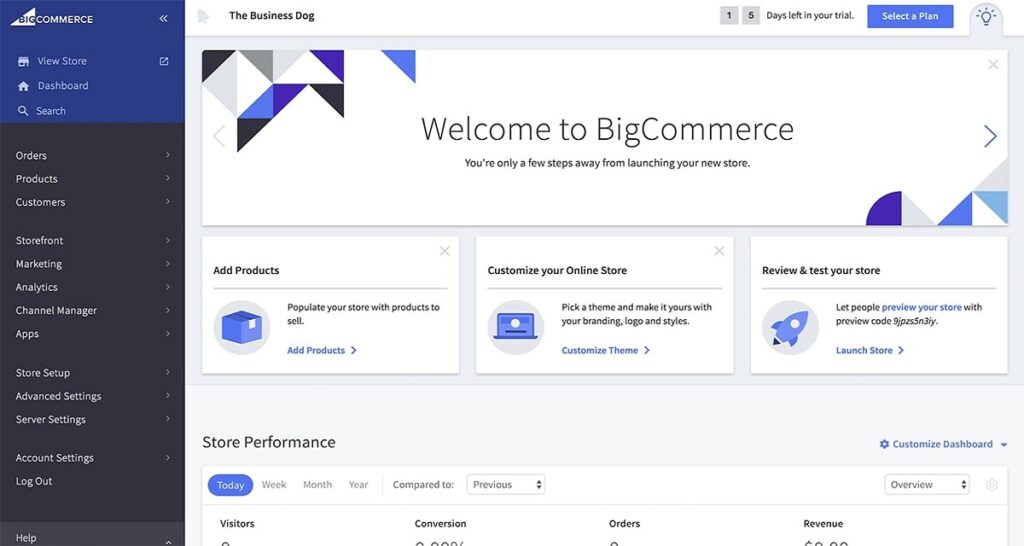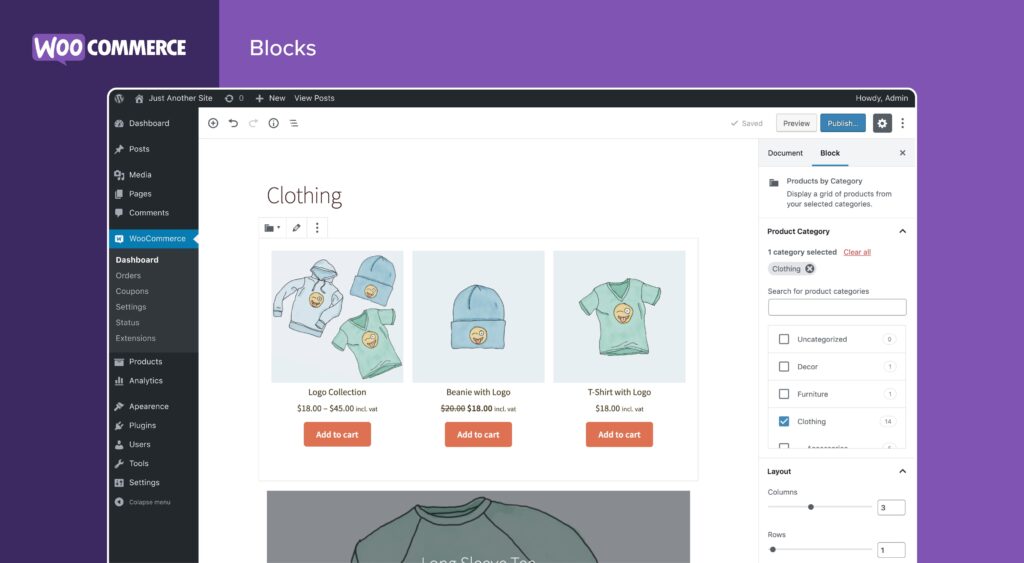Ready to launch your ecommerce store? stop not yet, obviously because you are an ecommlearner so this is your guide to the top 5 e-commerce platforms, unlocking the door to success in the dynamic world of online retail. Let’s discover the perfect platform for your business journey!
Why is this platform better than that one?
The superiority of this platform over its counterparts stems from a combination of key factors prioritizing user experience, flexibility, and scalability. Its user-friendly interface ensures easy navigation, making it accessible to users with varying levels of expertise. Unlike its competitors, this platform boasts extensive customization options, allowing businesses to tailor their online presence to specific needs and branding requirements.
Scalability is another critical aspect that sets this platform apart. As your business grows, so can your online store, effortlessly accommodating increased traffic, product offerings, and transactions. Moreover, its commitment to security features, seamless integration capabilities, and responsive customer support further solidify its position as the preferred choice. Essentially, it’s not just about being better—it’s about delivering a comprehensive solution that aligns with online businesses’ diverse needs and aspirations.
Choose what suits your business
Let’s explore the key components you should consider when thinking about choosing the right ecommerce platform that fits your current and future business needs.
Easy for beginners: A beginner-friendly approach simplifies the e-commerce journey. With an intuitive interface and straightforward setup, it caters to users of all levels. Beginners can easily manage their store, thanks to user-friendly features and accessible support resources.
Pricing: Begin with a budget-friendly entry and scale up as your business expands. While a comprehensive free option may be limited, the lower-tier plans provide a cost-effective starting point. Please ensure the higher plans align with your future needs for a seamless transition.
Scalability for Growth: Does the platform support growth? Whether you’re starting small or expanding rapidly, it scales effortlessly. As your business evolves, the platform adapts seamlessly, eliminating the need for disruptive migrations. It’s the ideal companion for a smooth and efficient journey toward business expansion.
Integration Capabilities: To optimize your ecommerce operations, you can leverage various tools like inventory tracking, automated marketing, and data analysis. However, the effectiveness of these tools depends on your platform’s integration capabilities. Ensure your platform seamlessly connects with the apps you need before committing
SEO features: Will Help You Stay Ahead of the Competition and Boost your online visibility. It helps your website rank higher on search engines by offering easy customization of meta tags and URLs. Plus, with straightforward settings and analytics, you can refine your content for better performance in the digital marketplace.
customer support: Count on excellent customer support with this platform. Whether you’re a beginner or an experienced user, a dedicated team is ready to assist you. From quick troubleshooting to helpful guidance, they ensure a smooth experience. Accessible resources and regular updates further enhance your journey, making customer support a standout feature of this platform.
Does an ecommerce website have costs and fees?
When discussing pricing, eCommerce platforms operate a bit differently, generally, There are three types of fees associated with an eCommerce platform:
Monthly fee. It varies from one platform to another, but to ensure we stay on track with the five platforms we’re discussing today, for most of the ecommerce platforms on this list, expect to pay around $29 to $40 for a basic plan.
Payment gateway fees. usually hover around 2.9% with an extra $0.30, a rate that often decreases with larger transaction volumes or upfront payments. Notably, certain platforms provide their proprietary payment gateways, offering users the flexibility to choose, while others rely on external services such as Stripe or PayPal
Transaction fees. This also depends on the platform you choose, most platforms have 0% fees, but in some of them, this changes when you choose not to use their gateway, and then you will be charged a 1% or 2% transaction fee
A quick introduction to the best ecommerce platforms for different niches
5 Stars platforms
1. Shopify: built-in selling features
2. Wix eCommerce: All-inclusive plans
3. Ecwid by Lightspeed: multichannel selling
4. BigCommerce: Big Business’s number-one solution
5. WooCommerce (for WordPress): turn a WordPress site into an online store
Key considerations for selecting one of the ecommerce platforms
so from the 5 e-commerce platforms that we talked about earlier, there are main keys you should consider when you want to choose one of them to start your online business journey
| Platforms | Shopify | WooCommerce | Ecwid | BigCommerce | Wix eCommerce |
| Pricing | $29-299 /month | Free | $19-82.50 /month | $29-299 /month | $17-35 /month |
| Drag And Drop | ✅ | ✅ | ✅ | ✅ | ✅ |
| Design and customization | easy | medium | easy | easy | easy |
| excellent Customer support | ✅ | ❌ | ✅ | ✅ | ✅ |
| Free Trial | 3 days | Free for ever | Free plan included | 15 days | 14 days |
The final 4 questions to choose your platform wisely
- Do you want it fast to set up and run your new online business?
- Do you want it cheap and efficient?
- Are you a large-volume seller?
- Do you have a WordPress website and need to add a shopping cart?
let’s answer these questions one by one
Fast to set up and run
Shopify

Pros
Cons

Shopify, with over 17 years of existence and millions of stores built, stands as an unparalleled choice for most small businesses seeking a swift online store setup. Sign up for a credit-card-free three-day trial, and your store can be ready within minutes. The intuitive web app guides you seamlessly through product addition, store customization, domain connection, and payment setup.
Even for beginners, Shopify’s user-friendly interface simplifies tasks like store design, product addition, discount creation, payment configuration, and sales tracking. Extensibility is a strong suit; with 12 free themes and 160 paid ones, the app store offers over 1,900 additional themes. Similarly, for any desired feature not native to Shopify, the app store provides an array of extensions and plugins.
While Shopify integrates AI features like Magic, its overall user experience remains consistent. Shopify’s versatility, user-friendly nature, and extensive app store make it a powerful choice for businesses of all sizes.
Wix ecommerce

Pros
Cons

Unlike many ecommerce platforms where additional pages are more of an add-on, Wix stands out as the top choice for building a comprehensive website with an integrated online store. It excels as a site builder, offering eCommerce features like order tracking, automated sales tax, and abandoned cart recovery, even on its basic plans. Wix is not just for online stores; it also provides a point-of-sale solution, allowing you to seamlessly integrate a retail store.
Wix has embraced AI, streamlining the signup process through a chatbot. While the effectiveness of certain AI features, such as a text generator for product descriptions, depends on your business needs, others like AI-generated meta tags can significantly speed up search engine optimization efforts.
Adding products, configuring payment methods, and setting up shipping options are quick tasks with Wix. Building your site may take a bit longer based on content and product listings, but Wix keeps it user-friendly. Once set, connecting a custom domain and launching your site is seamless with Wix’s assistance.
cheap and efficient
Ecwid by Lightspeed

Pros
Cons

Need to launch your online store quickly and efficiently? Look no further than Ecwid. Its free plan lets you sell your first 5 products, and as your business expands, affordable upgrades starting at $19/month keep it cost-effective. There are no hidden fees—just a seamless integration with your existing website or the option to set up your store with a company. site domain.
What sets Ecwid apart is its speed. The easy-to-follow to-do list on the Dashboard ensures a rapid setup in under 15 minutes. Beyond being a free eCommerce website builder, Ecwid’s paid plans boast powerful features, from social channel integration to listing products on major platforms like Amazon or eBay. It’s not just about the online realm—Ecwid supports in-person payments too.
Automation is a breeze with Ecwid. It handles tax calculations, discounts, and inventory tracking automatically. Whether you start with a free store or upgrade, there’s no need to worry about migrating to a new platform as your business grows. Launch, grow, and succeed swiftly with Ecwid
a large-volume seller
BigCommerce

Pros
Cons

BigCommerce, catering to enterprise-level companies, provides robust ecommerce features akin to Shopify and Wix. It’s a comprehensive platform with offerings like web hosting, customization, international selling tools, SEO, and marketplace product listing.
However, due to its focus on larger businesses, BigCommerce may lack the simplicity and flexibility desired by some merchants.
While BigCommerce provides five free themes, additional themes in the marketplace range from $150 to $400. The investment is justified for businesses with substantial sales, and the drag-and-drop site builder ensures customization flexibility.
With a $39/month Standard tier capped at $50,000/year and a $105/month Plus tier capped at $180,000/year, BigCommerce caters to businesses dealing with higher sales volumes. It’s a powerful choice for those ready to make a significant online impact.
have a WordPress website and need to add a shopping cart
WooCommerce

Pros
Cons

For those who already have a website set up and prefer integrating payment processing seamlessly, WooCommerce is the go-to solution, especially if you’re using WordPress. This WordPress plugin integrates effortlessly into your existing site, provided you use a compatible theme.
Installation is a breeze, just like any other WordPress plugin. Download WooCommerce, follow the instructions, and you’re ready to manage orders, create coupons, and view sales reports directly from your WordPress dashboard. Adding products is as straightforward as creating a typical post, and maintaining familiarity with the WordPress interface.
WooCommerce’s advantage for WordPress users lies in its seamless integration into the existing back-end. It offers a range of free and paid extensions to enhance your store, from real-time shipping rates to various payment gateways. Customization is easy, combining WooCommerce extensions with any WordPress plugins.
However, if you’re not familiar with WordPress or don’t prefer it, WooCommerce might be more effort than it’s worth. The managed-hosted versions can simplify installation, but a basic understanding of WordPress is still essential.
Conclusion
By choosing the right platform, you’ve made it possible for you and your business to go live easily, but there’s still a lot of work. Yes, it involves building this online store from scratch and promoting it with a strategic marketing plan.
Building this store can be easily done by following the guidance of expert website builders on YouTube or by purchasing the right course that guides you step-by-step to create, edit, and launch it.
However, the expertise of professionals may be necessary to create and set up your online store if you’re aiming for a professionally customized store that provides the best user experience. This can be achieved by choosing the right freelancer to do it for you


qui sunt eum delectus dolore sit qui sequi modi. ut blanditiis sed omnis repellendus architecto repudiandae sit eius iure ipsam saepe et. quibusdam voluptates quia et aut rerum sed esse veritatis cumq
nesciunt velit quos ea harum doloribus doloribus est facere vitae culpa architecto quaerat non nesciunt quaerat. vel similique natus sed sed minus natus et nam atque ea sunt hic praesentium.